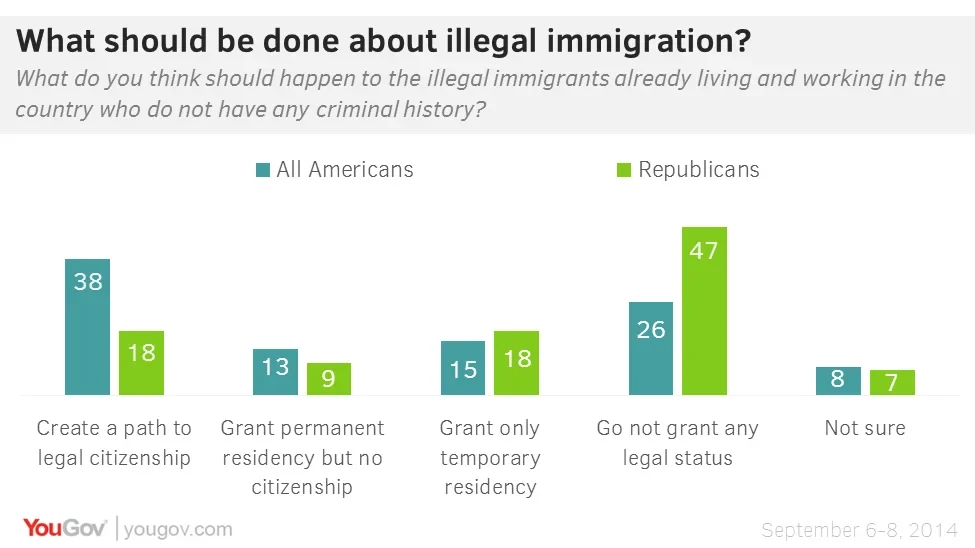Whether or not the public supports a particular executive order depends a lot on which party they and the President that issued it are in
Americans in the latest Economist/YouGov Poll divide closely – and along party lines – on general questions about presidential initiatives, taking their cue in most cases from the party of the President who issues an executive order. Democrats tend to be more in favor of the Executive Order of Franklin Roosevelt that established the WPA during the Depression and President Obama’s order to defer deportation hearings under certain conditions for illegal immigrants who were brought into the country as children.
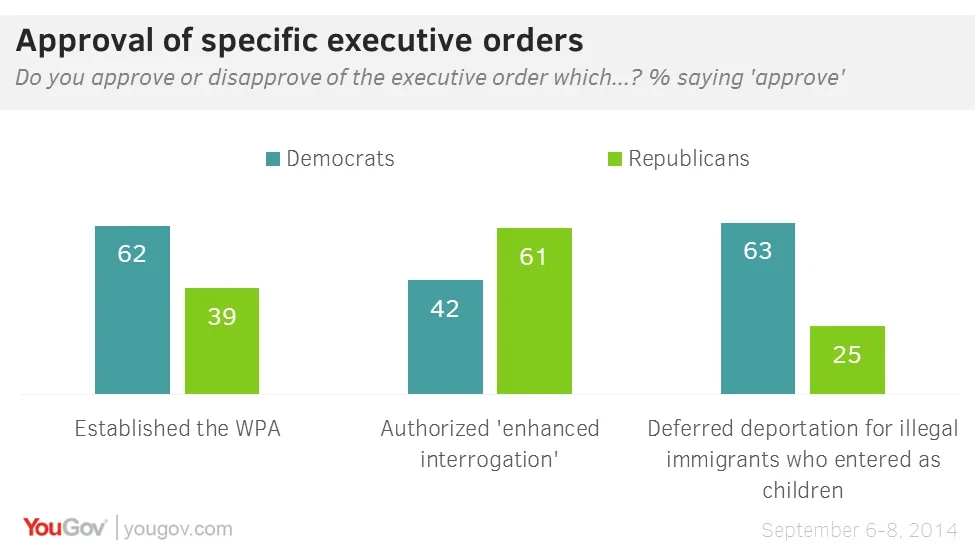
Republicans, in turn, are more in favor of George W. Bush’s executive order authorizing enhanced interrogation techniques for those declared enemy combatants.
The public’s judgment about executive orders in principle seem to be determined by one’s opinion about the current incumbent. 92% of Republicans disapprove of how Barack Obama is handling his job as President; it isn’t surprising that half disapprove of his issuing of executive orders.
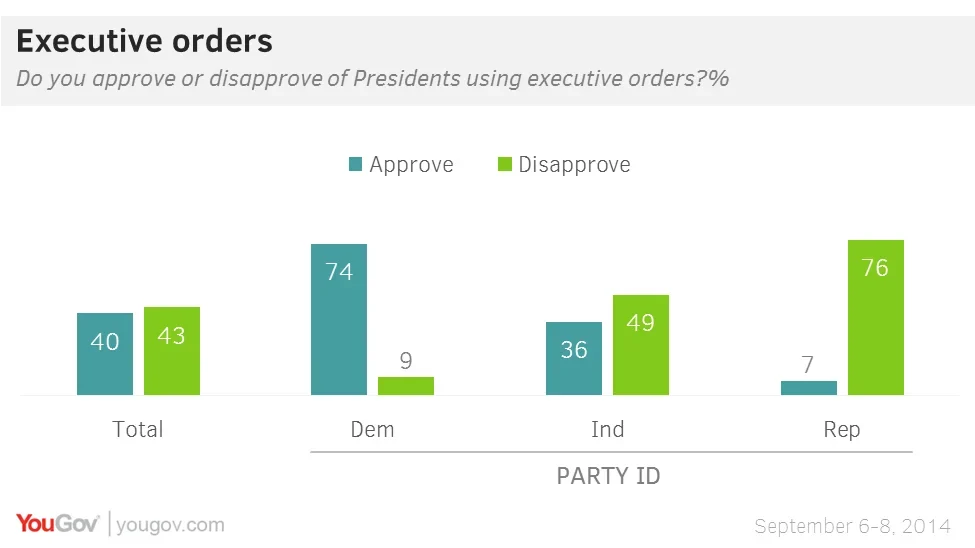
In fact, 40% of Republicans describe executive orders as unconstitutional; just 7% say they are constitutional. 41% say it depends. Democratic opinion is nearly a mirror image.
But that doesn’t mean that Republicans don’t support unilateral executive action – provided they agree with it. In last weekend’s poll, Republicans were much more likely than Democrats to regard ISIS as an “immediate and serious” threat to the United States and more willing than Democrats to believe the U.S. should launch air strikes against the militants.
The President’s Wednesday night speech may have helped bring Democrats along. In a YouGov Poll conducted after the President’s address to the nation, while perceptions of a threat to the U.S. from ISIS changed little, the percentage of Democrats saying the U.S. should launch airstrikes against ISIS in Iraq rose five points, and the percentage of Democrats saying the U.S. should launch airstrikes against the group in Syria soared 21 points from the weekend. Overall support for a range of actions also increased somewhat, reflecting greater support from Democrats.
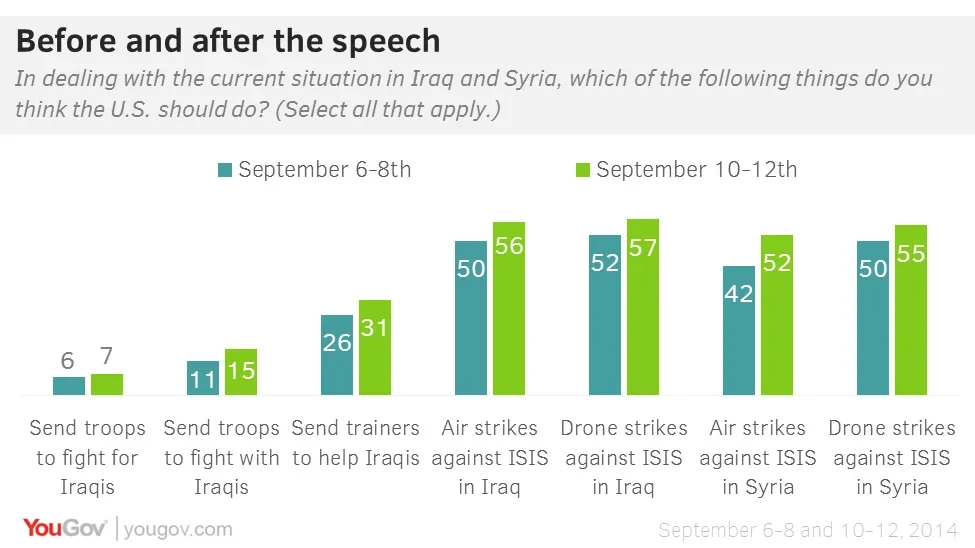
A majority of Republicans last weekend supported both actions; after the speech more than six in ten did.
There is other evidence that the Presidential speech moved some Democrats towards action in Iraq, while keeping Republican support. In the post-speech poll, which informed respondents that the President had authorized action against ISIS in Iraq, strong support from Democrats matched that from Republicans. Republicans supported airstrikes against ISIS in Iraq, even though the action was now directly associated with a President many of them dislike and distrust.
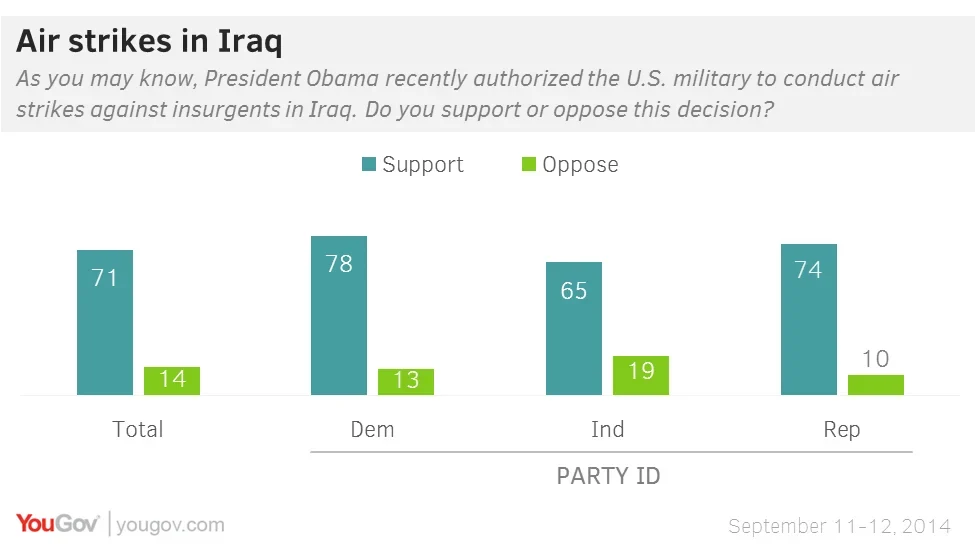
However, a party divide remains when it comes to extending those airstrikes to attack ISIS in Syria. Majorities of both Democrats and Republicans support such action – but Republicans are more likely to be strongly in support.
Both Republicans and Democrats were equally likely to view the President’s address Wednesday’ frequently, televised presidential addresses are more likely to attract people who already agree with presidential positions. Part of that may be that terrorism, which for several years has shrunk as an important issue, has once again emerged as a matter of concern. Although the economy continues to rank first as the country’s most important problem, 11% in last weekend’s poll picked terrorism as most important, the highest figure since the Economist/YouGov poll started asking the question. 17% of Republicans said terrorism was the most important issue for them.
The President’s cross-party success on taking military action in Iraq is not likely to be repeated on immigration, however. Here, members of his own party stand with the President on immigration reform, while Republicans are overwhelmingly opposed. 69% of Republicans oppose a pathway to citizenship for illegal immigrants; more would grant no legal status at all, not even temporary residency, than would allow illegal immigrants to remain in the U.S. at all.
As for those brought to the U.S. as children, most Republicans oppose a path to citizenship for them as well.
